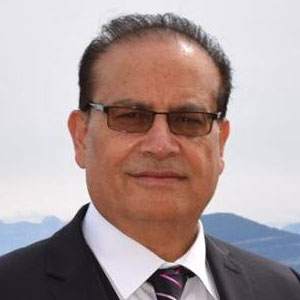Fervent rather panicky preparations are underway by the PML(N) spearheaded by Maryam Nawaz Sharif to give a grand reception to Nawaz Sharif in their attempt to surpass and exceed the reception given to Mohtarmah Shaheed Benazir Bhutto when she reached at Lahore Airport on April 1986 and was received by over two million supporters drawn from the entire country. They are also trying to outperform Muhtarmah Benazir Bhutto when she arrived at Karachi airport in 2007 and was received by over 250,000 supporters. Mr. Nawaz Sharif is scheduled to arrive in Lahore Airport on 21st October after over four years of stay in London.
The Supreme court in its latest verdict denied the right to appeal to past affectees of the suo moto verdicts of the Supreme including Mr. Nawaz Sharif, Jehangir Tareen and many others.
The Supreme Court’s verdict on the Supreme Court Procedure and Practices Act 2023 was marked by significant division among the judges, more than initially anticipated.
In a decision with a 10-5 majority, the Chief Justice’s power to initiate suo moto cases and form benches was stripped, allowing appeals against suo moto cases. However, this decision doesn’t have retrospective application, which means that individuals like Nawaz Sharif, Mr. Jehangir Tareen and other parliamentarians disqualified for life by the Supreme Court won’t be able to appeal their disqualifications.
This development has cast doubts on Nawaz Sharif’s chances of becoming Prime Minister for the fourth time and Jehangir Tareen’s ability to participate in upcoming elections. Adding to the complexity, the outgoing government has introduced an anomaly in the Election Act 2023, limiting disqualifications to a maximum of five years.
Proponents of Nawaz Sharif argue that this limits his and Jehangir Tareen’s disqualifications to five years, allowing them to contest elections. On the other hand, many believe that these legal changes have crushed the hopes of Nawaz Sharif’s fourth term as Prime Minister and Jehangir Tareen’s ambition to lead the IPP in upcoming elections.
Pro Nawaz Sharif’s legal team is aware that, in general, a law cannot retroactively alter, change, or modify a Supreme Court decision. This is because Supreme Court decisions are considered the established law of the land and can only be overturned by another Supreme Court decision.
In Pakistan, it’s a well-established principle that laws should not have retrospective application, unless there are compelling reasons to do so. The Supreme Court has also ruled that laws aimed at altering or modifying Supreme Court decisions are typically unconstitutional.
Nevertheless, there are some exceptions in Pakistan. For instance, the Supreme Court has allowed the retrospective application of laws that are curative or purely clarificatory in nature. Additionally, laws that are deemed necessary to protect the public interest may also be applied retrospectively. However, the right of appeal in the discussed scenario does not fall within these exceptions.
The fate of both Nawaz Sharif and Jehangir Tareen remains uncertain until the case is brought before the Supreme Court, a suitable bench is constituted by a three-member committee of the most senior judges, led by the Chief Justice, and the matters are adjudicated upon before the filing of nomination papers.
This situation places the destinies of not only Nawaz Sharif and Jehangir Tareen but also numerous other parliamentarians in a state of ambiguity. In standard legal practice, if the Supreme Court is involved in a case regarding a candidate’s eligibility for contesting an election, the candidate can still submit nomination papers. However, the election presiding officer cannot accept these nomination papers until the Supreme Court issues its final order on the case.
In an alternative scenario, if the Supreme Court confirms the candidate’s eligibility, the election presiding officer will accept the nomination papers, allowing the candidate to participate in the election.
Conversely, if the Supreme Court disqualifies a candidate, the election presiding officer will reject the nomination papers, barring the candidate from participating in the election. In a different scenario, candidates can file nomination papers, and their names may appear on the ballot, but if the Supreme Court disqualifies them before or after the election, they will be disqualified even if they secure victory.
For the PML(N), the first scenario is straightforward if Nawaz Sharif is absolved of his prior convictions, and his argument regarding the reduction of the disqualification period to five years is accepted. In this case, he would be eligible to run in the upcoming elections, contingent on both the establishment and the judiciary endorsing this decision.
It is in our paramount national interest that all political leaders have the opportunity to contest elections, and their acceptance or rejection should rest in the hands of the people through the power of their votes. This is a cornerstone of any well-functioning democracy. However, given the current intense and uncompromising stances of stakeholders, this vision appears distant and, at the same time, poses significant risks to the country’s security, safety, and its path to development and prosperity.
Our beloved nation, blessed with abundant hidden and discovered resources and a human potential of 250 million, remains largely untapped, with our human resources underdeveloped. We confront a daunting economic and financial paradox, yet deep within, we recognize our latent potential and the means to become a respected global player with a passport honored worldwide.
Many nations have ascended to the pinnacle of glory, and so can we. It’s high time that we rise as a one nation, unleash our full potential and reclaim our rightful place in the world.























